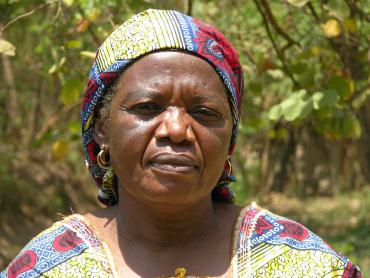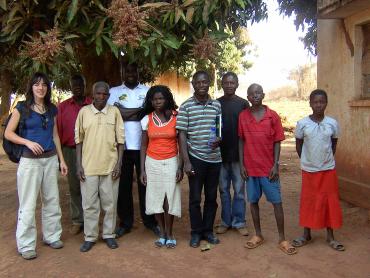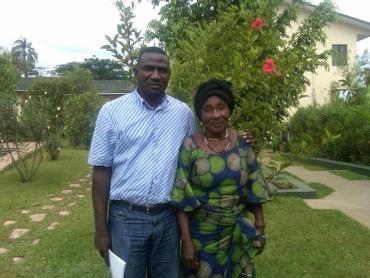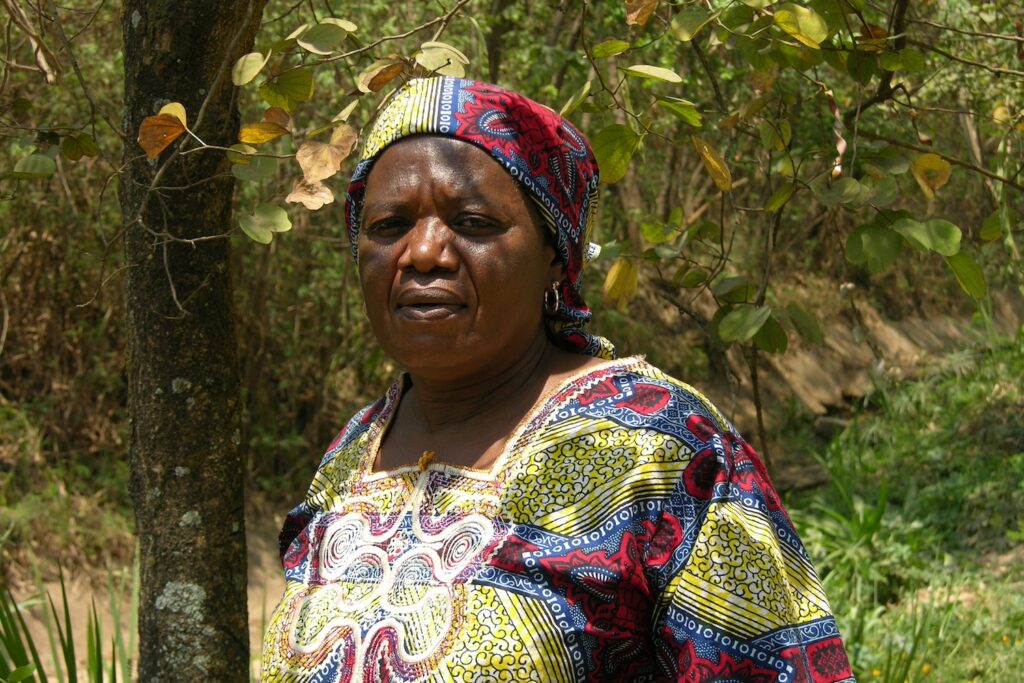Military rampage supported by Anvil Mining
In October 2004 the Congolese military crushed a small uprising in Kilwa, a town in Katanga Province, DRC. Immediately after the town was recaptured, the military went on the rampage, looting shops and houses and extorting money from, detaining, torturing, raping, and killing civilians. Over the next day or two, around 100 people were killed, including tens of dozens in summary executions, and others died in the following months and years from their injuries.
Here are the stories of just a few of the survivors.
Willy and Lukumani Ulimwengu

Adele lost two sons
On 15 October 2004, on hearing of Colonel Ademar’s approach, Adele Faray-Mwayuma who with her husband, Paulin Ulimwengu, ran a small, salted fish business in Kilwa, fled to the bush with her youngest children. Two of her sons, 21-year old Yuma Lukumani Ulimwengu and 19-year old Willy Nombele Ulimwengu, insisted on staying behind to protect the family’s home and property. On her return four days later, Adele discovered the door had been forced open, there were bloodstains on the floor and the contents of her home had been looted. She began a desperate search for her sons but local Red Cross workers told her that they had been killed by soldiers and their bodies buried in the mass grave at Nsensele.
Kabila Ntundu Donatien

Katayi Lidy lost her two-month old baby and eight other family members
Late in the afternoon of 15 October, Katayi Lidy was trying to escape Kilwa across Lake Moero by boat with other members of her family. Soldiers fired rockets causing the boat to capsize. Her two-month old baby, Kabila Ntundu Donatien, and eight other members of her immediate family drowned. Katayi was saved because her sister, groping in the water in the dark, managed to pull her out by her hair. The body of her baby was never found.
Pierre Kunda Musopelo and Dorcas Monga

The former police chief was arrested, imprisoned and tortured. Kunda never recovered his health and died in November 2009. His daughter endured rape and sexual assault while pregnant, and died 3 months later.
Pierre Kunda Musopelo:
“When the rebel leader, Kazadii and his men arrived on the night of 14 October 2004, I asked all my police officers to come and protect the town. I tried to contact the Army High Command but four rebels hit me and took away my weapon. Then they took me to Kazadi, who told me that I would face a popular trial the next day. If local people said that I had committed ‘tracasseries’ (bribery, harassment, etc) it would be bad for me. Kazadi then made for the harbour to try to find a radio: he wanted to contact Anvil. [Anvil confirmed that discussions took place between company security personnel and the rebel leader in Kilwa on 14 October 2004.]
On the way to the harbour I managed to slip away and hide and then with 13 other police officers we fled the town. I reached the village of Mukupa and took refuge there. But I was later found by Colonel Ademar who had sent his troops to recall the dispersed population in Anvil lorries. I and the other policemen were asked to return to Kilwa.
When I reached Kilwa I was arrested and beaten. Ademar accused me of joining the rebels and said ‘your fate is sealed, you will be killed.’ I was then shut up in a small room with about 48 other people. We were jammed in so tightly no one could move or sit down. It only could hold ten people. It was hot and we were unable to breathe – four people died.”
The Territorial Administrator confirmed that Kunda had been very badly tortured by Colonel Ademar. He was flown to Lubumbashi and held incommunicado in the headquarters of the 6th Military Region for another month where the torture and ill-treatment continued. He was then transferred to the Kazapa prison outside Lubumbashi. He was tried by a military court on a charge of treason but was acquitted in April 2005 and released.
Dorcas Monga:
22-year-old Dorcas Monga, who was about seven months pregnant and engaged to be married, was raped and sexually assaulted by three FARDC soldiers after her father’s detention. They knew she was the daughter of the police chief.
Dorcas, who was left paralysed after giving birth, was then taken to the hospital. It was only then that Dorcas told her mother, who had not been in Kilwa at the time of the incident, what had happened.
Dorcas was transferred to the hospital in Lubumbashi where she died at the end of 2004, some three months after the rape.
Read more about the Kilwa massacre.

